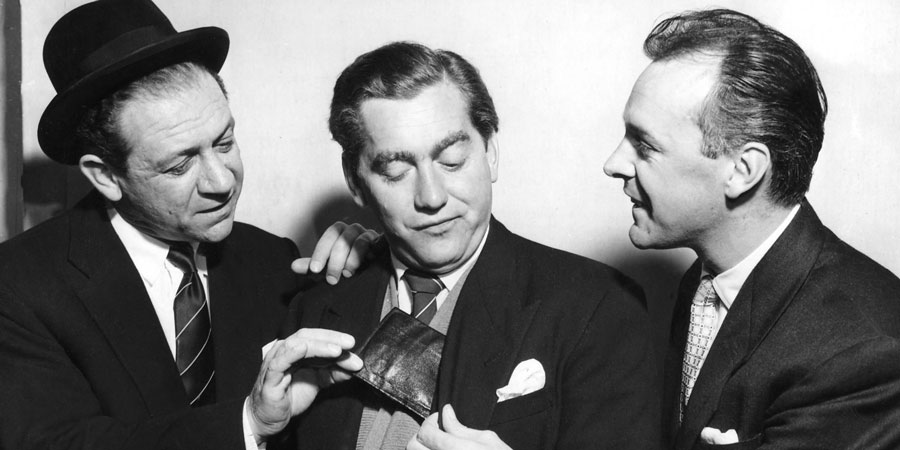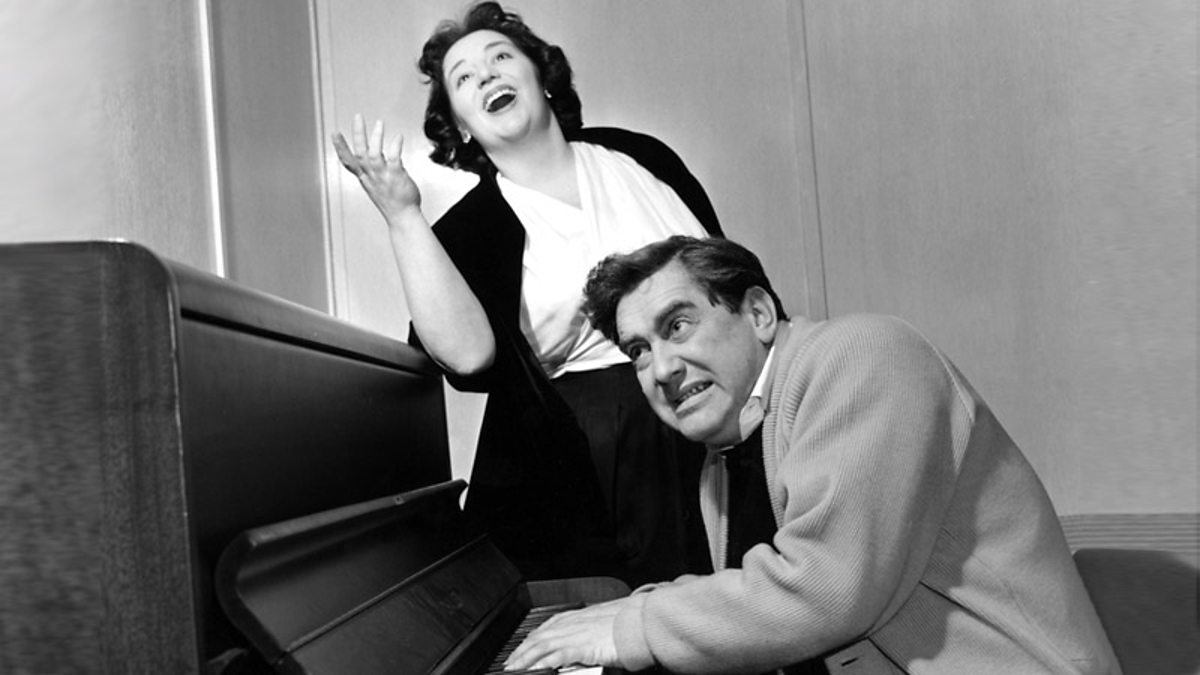Whimsy: March 2020 Archives

If you're a fan of the British sitcoms that have made their way to American television -- "Fawlty Towers," "One Foot in the Grave," "Keeping Up Appearances," "Yes, Minister," to name a few examples -- you will enjoy the radio show that set the standard for the Britcom genre. "Hancock's Half Hour" has become my favorite British comedy, and a family favorite as well.
On November 2, 1954, "Hancock's Half Hour" made its debut on the BBC Light Programme. Starring comedian Tony Hancock and written by Alan Simpson and Ray Galton, the show quickly became appointment radio across the UK. It ran for six series and 102 episodes over six years and spawned a television version that was an even bigger pop-culture phenomenon. Writers Galton and Simpson were introduced to classic American radio comedy via American Forces Radio Service which broadcast in the UK during and after World War II; they were particular fans of the Jack Benny Show, and the influence is apparent.
Hancock plays himself as a mostly unsuccessful comedian, a pretentious pseudo-intellectual, an easy target for the latest scheme from shady, oleaginous Sid James. Sid James was also a star of the long-running "Carry On" series of comedy movies, as were Hattie Jacques, who plays Hancock's secretary Griselda Pugh, and Kenneth Williams, who played multiple roles in each episode. Bill Kerr, Hancock's Australian lodger, rounded out the cast. In the first series, Moira Lister played Hancock's girlfriend, succeeded by Andreé Melly in series 2 and 3.
The show is still broadcast every week on BBC Radio 4 Extra, and the four or five most recent episodes are usually available for streaming on the BBC website, but as a way to keep us entertained during this time of shelter-in-place, the BBC is making all of the surviving episodes of "Hancock's Half Hour" available for listening on their website. At this writing, 59 episodes are online, with one more being added each week. Not only that, "The Missing Hancocks," the 21 missing episodes recreated over the last six years by a cast starring Kevin McNally, are all online as well.
I asked fellow members of the Tony Hancock Appreciation Society which episode they'd recommend to a first-time listener. It's hard to pick a favorite.
The consensus pick was "Sunday Afternoon at Home," first aired on April 22, 1958. Not only is it a favorite of fans, it's especially timely: Tony and friends are stuck at home on a rainy Sunday. The pubs are closed, the shops are closed, the TV is broken, and the only entertainment is a visit from a neighbor who does bird calls.
"Wild Man of the Woods," from 1957, is another favorite: Tony, spurning civilization and its discontents, heads off to the forest to live as one with nature. Sid and Bill find a way to make some money by turning Tony's retreat into a zoo with one creature on display.

In "The Diary, Tony looks back on his diary entries from 1956 and daydreams, Walter Mitty-style, of three different career paths he might have taken. The last scenario, with Tony as test pilot, is a classic, but I'm fond of Bill Kerr's portrayal of Bill-O the Sad-Faced Clown, a malevolent "nice guy," in the lion-tamer segment.
Tony's triskaidekaphobia means he can't perform in "The 13th [Episode] of the Series" without a ceremony at Stonehenge to appease the Little People. If you've wondered what happens to the stones at night, have a listen to Tony's conversation with an office in the Stonehenge Police Force.
The occasional spoofs of movies and theater -- "The Blackboard Jungle," "The King and I," "Look Back in Hunger," "Cinderella," "Around the World in 80 Days" -- are a lot of fun, as are the takes on contemporary trends, like coffeehouses, TV game shows, and Beatnik poetry.
Today's BBC gets a lot of grief, much of it deserved, for the progressive, metropolitan slant to its news coverage of politics and culture, but I give Auntie Beeb credit not only for continuing to broadcast classic radio comedy, drama, sci-fi, and documentary on Radio 4 and Radio 4 Extra, but also for continuing to produce new content, something that seldom happens in the rest of the world. So, while you're working in the yard, sorting through the garage, or taking your daily constitutional, pick a program from the archives and have a listen.
MORE: "The Hitchhiker's Guide to the Galaxy" began life as a six-episode radio series. BBC Radio 4 Extra recently broadcast those episodes plus interviews and commentary in honor of the program's 42nd anniversary.